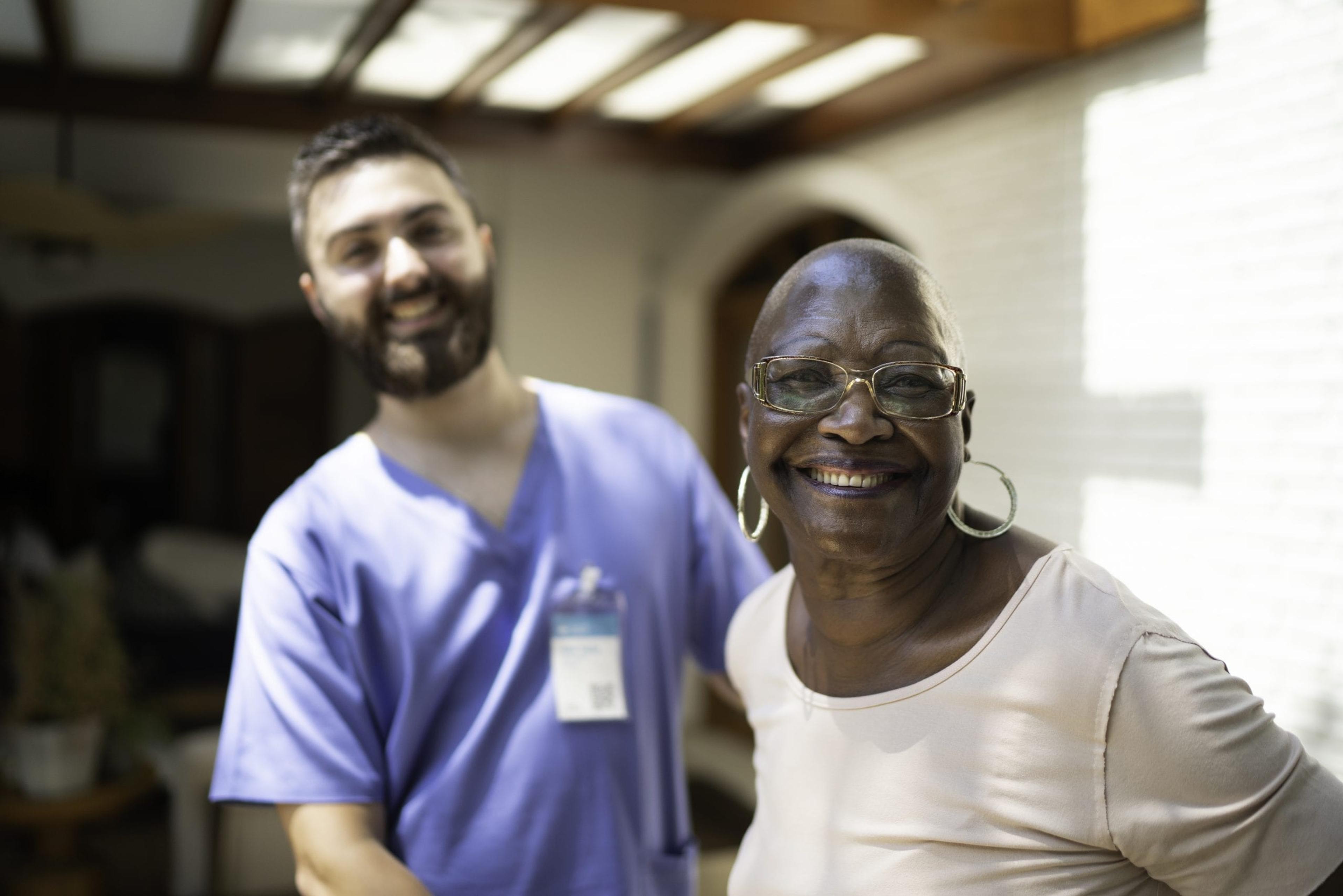U of M Partners with Blue Cross for Innovative Hospital at Home Program
Julie Bitely
| 3 min read

For certain acute medical diagnoses, the best place to recover might not be the hospital. It might be at home in your own bed. That’s the premise behind a new pilot program debuting this month at Michigan Medicine. The Hospital Care at Home program is a care concept that aims to reduce inpatient hospital care delivery and instead manage select acute medical diagnoses safely in the comfort of the patient’s home. For the pilot program, patients with congestive heart failure, cellulitis, chronic obstructive pulmonary disease, pneumonia or urinary tract infection who normally would be admitted to the hospital will have the option to receive treatment and recover at home. The five health conditions were identified as part of the pilot due to the straightforward nature of treatment plans that can be managed safely in the home. “Historically, these diagnoses involve short, uncomplicated lengths of stay,” explained Dr. Grace Jenq, associate clinical professor, Geriatric and Palliative Medicine, University of Michigan. “We think care can be replicated in the home very well.” “It’s an innovative approach to meeting people where their needs are while being able to rest and recover in their own beds,” said Steve Anderson, vice president, Provider Contracting & Network Administration, Blue Cross Blue Shield of Michigan. During the pilot, Michigan Medicine will limit the number of patients taking part in the program to ensure adequate staffing. To start, the concept will be limited to Washtenaw County and Belleville residents who are Blue Cross or Blue Care Network members. Michigan Medicine’s clinical model delivers all the essential elements of inpatient care in the safety and comfort of a patient’s home. A patient’s morning might start with a visit from a nurse, who would come right to their home to draw labs, assess their condition, administer antibiotics and perform any other necessary tasks. Based on the patient’s status, adjustments in therapy could be made by a doctor or nurse practitioner. If necessary, the patient could receive a second nursing visit later in the day and be supported by physical therapists and home health aides. A typical recovery time may take three to five days. Jenq said recuperating at home is typically more restful than in the hospital. She predicts that once patients experience care at home, they’ll refer friends and family, creating demand for the model. Finding new ways to deliver care will be increasingly important as an aging population puts pressure on the health care system, she said. “We have to have other ways of delivering care because of the changing demographics that are occurring with the Baby Boomers getting older,” she said. “We don’t have hospital beds that will be able to take on the new onslaught of patients who are reaching older age, so we have to be creative in how we manage these patients.” The Hospital Care at Home program will be the first time this model of care is deployed in Michigan. One of the earliest tests of this type of care took place at Mt. Sinai Hospital in New York. Patients reported fewer readmissions, fewer emergency department visits and better patient experience. At the end of the pilot period, Michigan Medicine and Blue Cross will evaluate whether to continue. If all goes well, Anderson is hopeful that the model could be expanded to other hospital systems and other areas of the state. Jenq believes more diagnoses could be included in the program and that it would be very effective for treating Medicare Advantage patients. Both agree the program has great potential to address issues of hospital capacity and reduce care delivery costs while improving health outcomes. Related:
- Unique Partnership Has Improved Health Care in Michigan
- Volunteer Veterans Break Through Mental Health Stigma
- Doctors Take the Driver's Seat in Blueprint for Affordability Contracts
Photo credit: FG Trade





